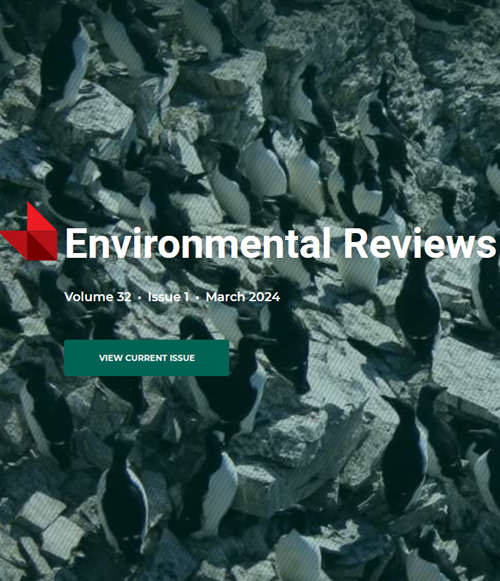Speaking the same language: Aligning project designations to clarify communication in restoration ecology
IF 5.1
3区 环境科学与生态学
Q2 ENVIRONMENTAL SCIENCES
引用次数: 1
Abstract
As we enter the United Nations Decade of Ecosystem Restoration, the need to engage in restoration activities has never been greater. Included within this need is a requirement for clear communication between researchers, practitioners, policymakers, stakeholders, and community members. To facilitate the discussion and assessment of restorative activities, we propose two decision trees to differentiate between key restoration terms (Reclamation, Rehabilitation, Ecological Restoration, Rewilding, Landscape Restoration, Intra-Ecosystem Restoration, Reference Condition Restoration, and Ecological Reclamation) and to clarify how they relate to each other, based upon project scope and desired/intended project outcomes. Continued use of unclear terminology impedes practitioners or researchers from using the literature efficiently, to find precedents that could assist their current efforts. As such, increasing clarity of communications will ensure restoration is discussed within a framework of well-defined and agreed upon terms. It is our hope that this suggested framework will contribute to the ongoing and much needed terminology debate and help enhance cohesion on the use of key terms within the restoration focused literature. Given the increased focus upon restoration projects of any kind, especially during the UN's decade of ecosystem restoration, it is more important than ever that restoration practitioners speak the same language.说同一种语言:调整项目名称以澄清修复生态学中的沟通
在我们进入联合国生态系统恢复十年之际,参与恢复活动的必要性前所未有。这一需求包括研究人员、从业者、政策制定者、利益相关者和社区成员之间明确沟通的要求。为了便于讨论和评估恢复活动,我们提出了两个决策树来区分关键的恢复术语(开垦、恢复、生态恢复、重建、景观恢复、生态系统内恢复、参考条件恢复和生态开垦),并阐明它们之间的关系,基于项目范围和期望/预期的项目成果。持续使用不明确的术语阻碍了从业者或研究人员有效地使用文献,以找到有助于他们当前努力的先例。因此,通信的日益清晰将确保在明确和商定的条款框架内讨论恢复问题。我们希望,这一建议的框架将有助于正在进行的、急需的术语辩论,并有助于增强以修复为重点的文献中关键术语使用的凝聚力。鉴于人们越来越关注任何类型的恢复项目,特别是在联合国生态系统恢复十年期间,恢复从业者说同样的语言比以往任何时候都更重要。
本文章由计算机程序翻译,如有差异,请以英文原文为准。
求助全文
约1分钟内获得全文
求助全文
来源期刊

Environmental Reviews
环境科学-环境科学
自引率
3.50%
发文量
45
期刊介绍:
Published since 1993, Environmental Reviews is a quarterly journal that presents authoritative literature reviews on a wide range of environmental science and associated environmental studies topics, with emphasis on the effects on and response of both natural and manmade ecosystems to anthropogenic stress. The authorship and scope are international, with critical literature reviews submitted and invited on such topics as sustainability, water supply management, climate change, harvesting impacts, acid rain, pesticide use, lake acidification, air and marine pollution, oil and gas development, biological control, food chain biomagnification, rehabilitation of polluted aquatic systems, erosion, forestry, bio-indicators of environmental stress, conservation of biodiversity, and many other environmental issues.
 求助内容:
求助内容: 应助结果提醒方式:
应助结果提醒方式:


